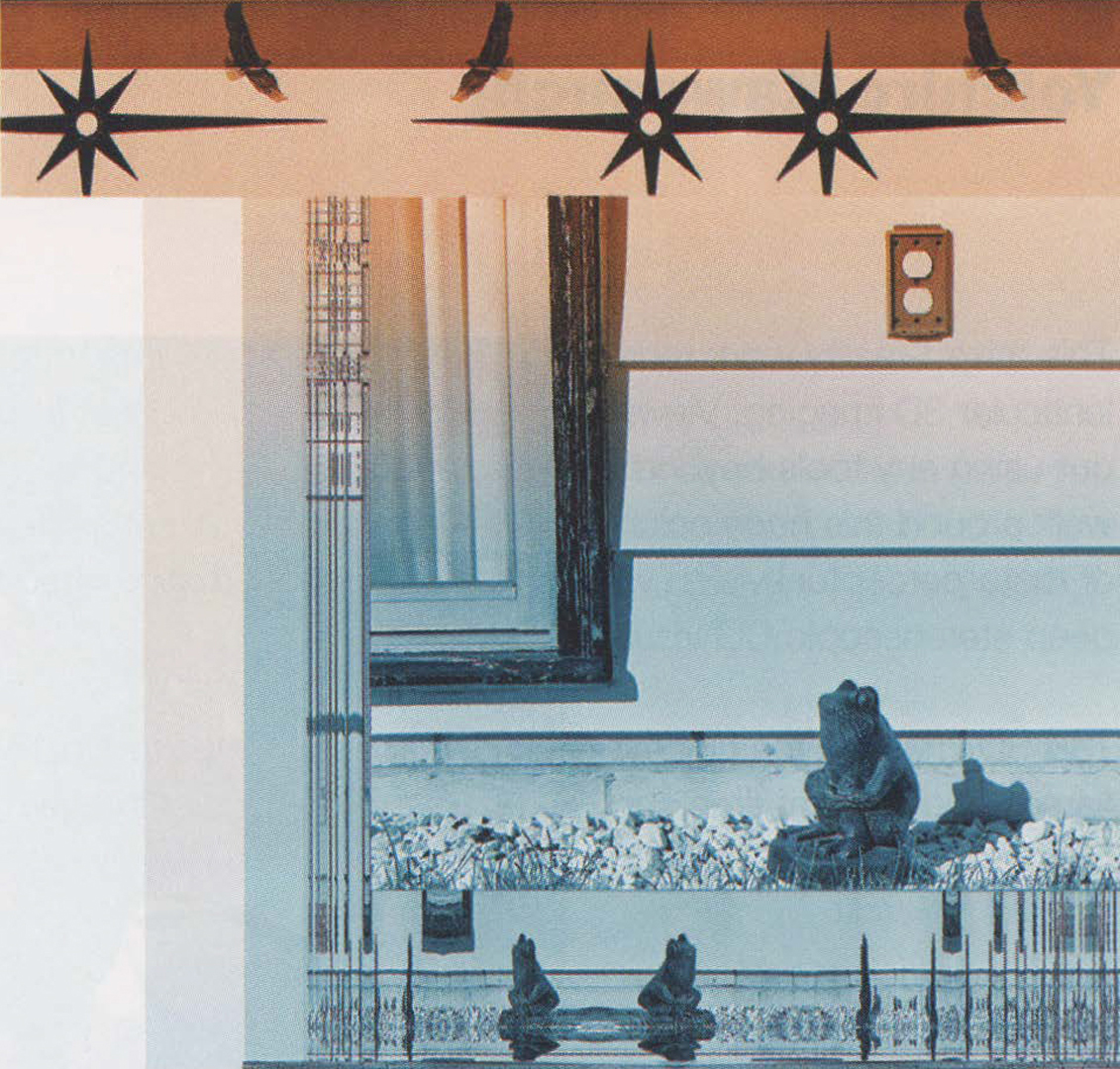Dolores Kaufman: Touring Suburbia I Number Three
Artist(s):
Title:
- Touring Suburbia I Number Three
Exhibition:
Creation Year:
- 2005
Medium:
- Pigment ink on fine art rag
Size:
- 32 inches x 32 inches
Category:
Artist Statement:
A city girl at heart, I have had a love-hate relationship with suburbia for over 20 years. It began in 1979 when, over a period of many months, I photographed the lawns, gardens, and homes of Parma, Ohio, a western suburb of Cleveland and the epitome of middle Americana. To those who live on the East Side, the West Side is a cultural wasteland of cookie-cutter houses, meatball shrubs, bland lawns, and decorative cliches. So when I set out with my camera, it was as on safari to a strange and distant land. What I found were cookie-cutter houses, meatball shrubs, decorative cliches, patterns of light and shadow, geometric perfection, and quirky expressions of faith, love, and individuality. This was no modern gated community where a large question mark painted on a garage door would be against the rules. The result of the expedition was the series, Parma Piece, subsequently exhibited at the New Gallery of Contemporary Art and the Cleveland Art Museum. But Parma Piece was only part of the story. Suburbia is where the American Dream lives, and those who dwell there dream the Big Dream. Just as they (or their parents) fled to America in search of freedom and prosperity, they, in turn, fled the dirt, noise, chaos, and racial strife of the city in search of the quiet, order, cleanliness, and safety of the suburbs. For the vast majority, however, prosperity only went so far while they held fast to the notion that if they worked hard. invested, and saved, they, too, could live in European-style palaces with manicured gardens, a status that was unattainable under European political/economic systems. For the time being, however, a bungalow nested inside a row of identical bungalows would have to do. And while the palaces and sculpted gardens of Versailles were out of reach, they had their little plots of earth on which to plant their shrubs and weedless grass shaped and trimmed to unearthly standards of perfection. Instead of monumental statues, they had rocks and swans and flamingos and little boys carrying fishing poles. Their homes would be their castles, of sorts, and they would dream … Using digital tools, I am able to re-visualize that dream, to begin to imagine Versailles from their individual efforts. Touring Suburbia represents an attempt to recapture a dream once glimpsed.





